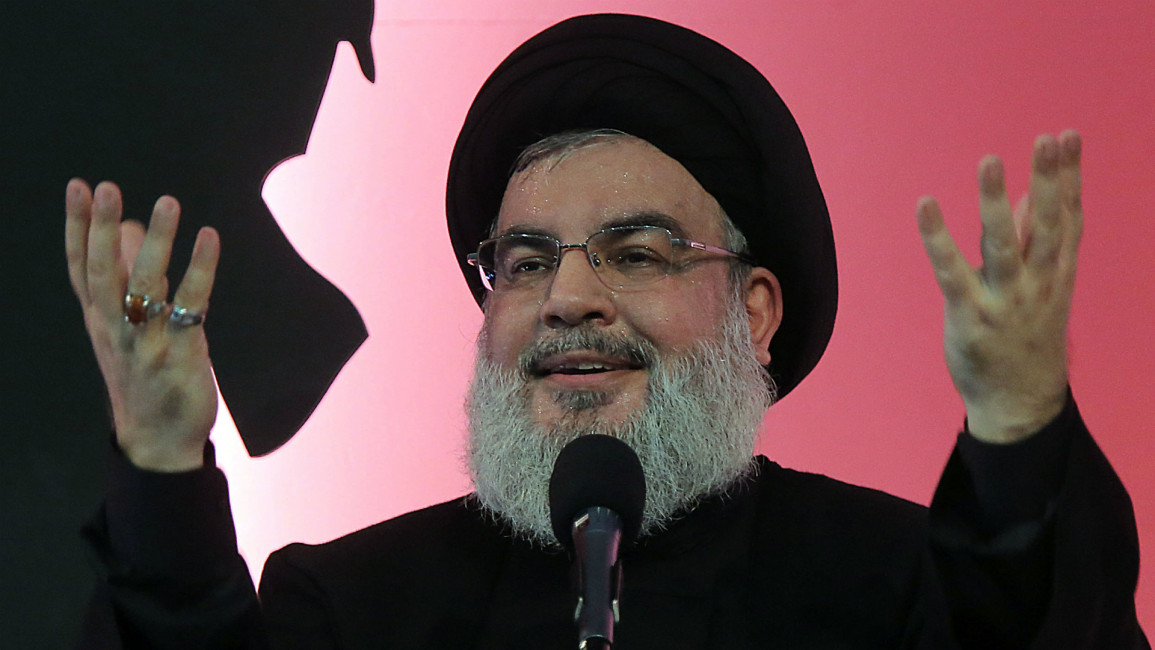
Nasrallah criticised for double standards on Yemen and Syria
On Tuesday during a rare public appearance Hizballah chief Sayyed Hassan Nasrallah took aim at Saudi Arabia for its purported involvement in a devastating attack on a funeral in Sanaa, the Yemeni capital, that resulted in over 130 deaths on Saturday.
Speaking in the Sayyed al-Shuhada complex in Dahieh, in Beirut’s southern suburbs ahead of the Shia religious commemoration of Ashura, Nasrallah said that Saudi Arabia had committed a “historic mistake” when it decided to intervene in Yemen describing tragic events in Sanaa on Saturday as “a major scandal for the Saudi regime.”
The Hizballah chief also called for an investigation into the attack “under the patronage of the international community” in order to make Riyadh “admit its war crimes.”
Human rights watchdogs have long hazarded that Saudi airstrikes in Yemen result in civilian deaths and have targeted hospitals. According to the UN, the Saudi-led coalition are responsible for more than 60 percent of all civilian deaths in Yemen.
A rhetoric of 'hypocrisy'
But, it could be argued Nasrallah’s words contained more than a little element of hypocrisy.
In Syria, the regime of Bashar al-Assad and its Russian backers have also developed a proclivity for targeting civilian-inhabited areas during the conflict, backed by Hizballah forces on the ground.
The current onslaught on rebel-held Aleppo, where hundreds have been killed in the last couple of weeks, provides a devastating case in point.
However speaking on Tuesday, Nasrallah defended the Assad regime’s current bombing campaign over Aleppo instead blaming the US for the collapse of a ceasefire brokered with Moscow in September and accusing Washington of facilitating the Islamic State's control of areas of eastern Syria.
“The US withdrew [from the truce talks] and blocked the possibility of further discussions when they discovered that the targeting of the Nusra Front would weaken other terrorist forces currently aiding the US in its pursuit of interests in Syria,” said Nasrallah, during the address.
"The US wants ISIS to take Raqqa and Deir ez-Zour.”
In September an errant US airstrike, which Washington claims was accidental, targeted a group of Syrian army personnel outside Deir ez-Zor resulting in numerous deaths. Pro-Syrian regime media channels claimed at the time that the attack enabled IS to temporarily take territory from the Syrian regime in the area, an idea that has since been continuously promoted by supporters of the regime and its ideologues.
Earlier on Tuesday Sobhi Tfaily, the former Secretary General of Hizballah who has since disavowed the movement and its Iranian backers, slammed the Lebanese Shia paramilitary group’s role in ongoing events in Aleppo where life for those 275,000 civilians besieged in the area has been described by the UN as a "merciless abyss of humanitarian catastrophe".
In a post on Twitter Tfaily linked bloodshed in Aleppo to the death of Husayn, grandson of the prophet Mohammad, at the hands of the Ummayad caliph Yazid's army at the Battle of Karbala (680 AD). This historical event marks the definitive schism of the Sunni and Shia communities and is commemorated by Shia Muslims during Ashura.
On Twitter Tfaily wrote: “Karbala this year is in Aleppo and the infant of Imam Hussayn is under the rubble of its houses.”
— الشيخ صبحي الطُفيلي (@SobhiTfaily) September 25, 2016
" style="color:#fff;" class="twitter-post-link" target="_blank">Twitter Post
|
Speaking on Tuesday, Nasrallah said that Saudi Arabia had “bombed everything in Yemen amid global silence.”
But Tfaily and other critics would argue Hizballah’s allies are doing exactly the same thing in Syria. Hizballah has itself physically participated in the process and Nasrallah, always a powerful and charismatic orator, must be acutely aware of this.




